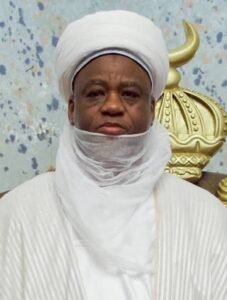NEC intensifies efforts to revive power sector, forms national electrification committee

The National Economic Council (NEC) has resolved to strengthen the implementation of the National Electrification Strategy as part of efforts to address recurring power grid collapses in Nigeria.
Vice President Kashim Shettima, who chairs the NEC, emphasized the critical role of energy access, stating that electricity is the oxygen of economic growth and a fundamental right rather than a privilege.
As part of the resolutions from the Council’s 146th meeting, held on Thursday at the Presidential Villa in Abuja, a new National Electrification Committee has been established. The committee, chaired by Cross River State Governor Bassey Otu, is tasked with addressing the pressing challenges in the power sector.
The committee’s mandate includes enhancing collaboration between states and deepening engagement within the framework of the Electricity Reform Act 2023 and the National Electrification Strategy and Implementation Plan according to a statement by Stanley Nkwocha, Senior Special to The President on Media & Communications.
The statement reads in full:
Following a presentation by the Managing Director of the Rural Electrification Agency (REA), NEC observed that Nigeria needs a reformed and diversified electricity system, noting that by empowering states, accessibility and affordability of electricity can be enabled, ensuring that all regions effectively meet their specific energy needs.
Members of the committee include Governors Dikko Radda of Katsina, Inuwa Yahaya of Gombe, Ademola Adeleke of Osun, Hope Uzodimma of Imo, and Caleb Mutfwang of Plateau.
Others are Ministers of Finance, Mr Wale Edun; Budget and Economic Planning, Sen. Atiku Bagudu; Power, Mr Adebayo Adelabu; Special Adviser to the President on NEC and Climate Change; Special Adviser to the President on Power; Managing Director, Rural Electrification Agency (REA), and Managing Director, Niger Delta Power Holding Company.
Earlier in his address, Vice President Shettima maintained that access to energy is a fundamental right and not a privilege because electricity is the oxygen of economic growth.
He outlined issues before the Council that require urgent attention to include energy infrastructure, human capital development, creative industries, fiscal strategy, industrial innovation, and long-term development planning, describing them as foundational to the transformation Nigeria needs.
VP Shettima explained that it is for this that experts and stakeholders from some of the critical sectors have been invited to share their insights and contributions.
He stated: “The past few months of collapses in our national power grid compel us to reinforce the pace with which we are adopting and implementing the National Electrification Strategy. Energy access is a fundamental right, not a privilege. It is the oxygen of economic growth.
“Our blueprints must, therefore, strive to expand access, empower rural communities, and drive productivity, especially for MSMEs. I hope that our discussions today will inspire solutions to light up homes, power businesses, and fuel Nigeria’s industrial future.
“Whatever path we agree upon, it is clear that a private-sector-led distributed renewable energy generation approach is essential to increasing electricity access for households and small enterprises alike”.
The Vice President also urged the Council to take Nigeria’s creative industry seriously, saying it presents an avenue to redefine the nation’s economic trajectory.
According to him, “new technologies have not only amplified the global appeal of our arts, crafts, and culture but also opened up revenue streams and job opportunities for Nigerians.
“Our music, films, art, and cultural heritage are not just global symbols of Nigeria’s soft power but also vital engines of economic growth. We cannot afford to relegate the promise of turning creativity into wealth, empowering our youth, and positioning Nigeria as a hub of innovation and cultural excellence,” he added.
Meanwhile, the position of states on state police will be ready by the next NEC meeting.
Deliberating on the updated submission on the establishment of state police, Council mandated states that were yet to make their submissions on the subject matter should comply within the next one week to enable NEC to come up with a unanimous position on state police at the next meeting.
Other highlights of the meeting include:
PRESENTATION BY THE ACCOUNTANT GENERAL OF THE FEDERATION ON ACCOUNT BALANCES UPDATE AS AT 20TH NOVEMBER, 2024
Excess Crude Account – $473,754.57
Stabilization Account – N33,324,135,076.39
Natural Resources Account – N26,847,747,874.93
PRESENTATION ON SPECIAL AGRO-INDUSTRIAL PROCESSING ZONES BY THE SAPZs NATIONAL PROGRAMME COORDINATOR, DR KABIR YUSUF
The programme is currently being implemented at varying stages in 8 States of the federation namely; Kano, Kaduna, Kwara, Oyo, Ogun, Imo, Cross River, and FCT, under phase 1 of the Special Agro-Industrial Processing Zones.
Under the second phase, a total of 24 States were visited by the selection team to assess their readiness for the programme. The implementation model is a government and private sector-led (SPV) arrangement hence, discussions are underway to partner with private developers & co-financiers on the project estimated to cost about $1 billion.
The SAPZ coordinating office is working out a multi-tranche financing arrangement to accommodate additional States over the next 3 years. It is structured in three tranches.
Prayers:
- Provision of intervention funds for each State’s ATC to boost production.
- Office of the VP to use its convening power in obtaining additional co-financing for the SAPZ phase 2 (SAPZ-2) States.
- Fast-tracking of the BADEA $300m multi-tranche financing for SAPZ-2 by the Federal Ministry of Finance.
Resolution:
Council urged states to key into the programme and noted that the SAPZ will be a game-changer if states give it the necessary support and consideration.
States to hold a special meeting with the Minister of Agriculture and the SAPZ management to address issues and requests made in the presentation by the SAPZ management.
PRESENTATION ON THE NEW NIGERIA SOVEREIGN INVESTMENT AUTHORITY (NSIA) GOVERNING COUNCIL
A presentation by the Minister of Finance requested NEC to ratify the nomination of persons to serve as chairman and members of the governing council of the Nigeria Sovereign Investment Authority (NSIA).
Members of the Council, when appointed, shall have the opportunity to raise questions of and give counsel to the Board and Management of the Authority.
Council Resolution:
Council commended the management of NSIA and recognised the importance of the fund towards investment in critical sectors of the economy.
Council consequently approved NSIA’s request to onboard First Abu Dhabi Bank (FAB) as an alternate custodian.
A presentation by the Executive Vice Chairman/CEO of the National Agency for Science and Engineering Infrastructure (NASENI) showed the agency’s latest innovations and strategic initiatives including products like a solar irrigation pump, electric vehicles, coal-based fertilizer, NASENI solar home systems, and smart devices.
States were urged to leverage NASENI’s tailored support for manufacturing, industrial development, and access to public sector markets, alongside infrastructure and policy benefits to enhance economic growth.
In its resolutions, Council directed NASENI to repair tractors and other agricultural machinery across the country and scale up the establishment of lithium battery factories in regions rich in raw materials.







